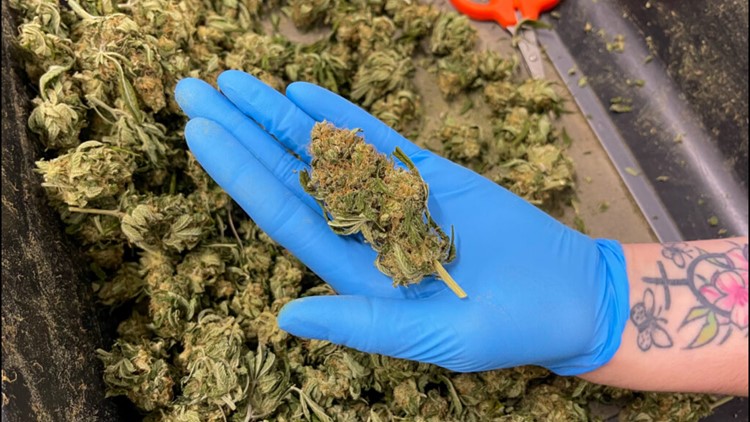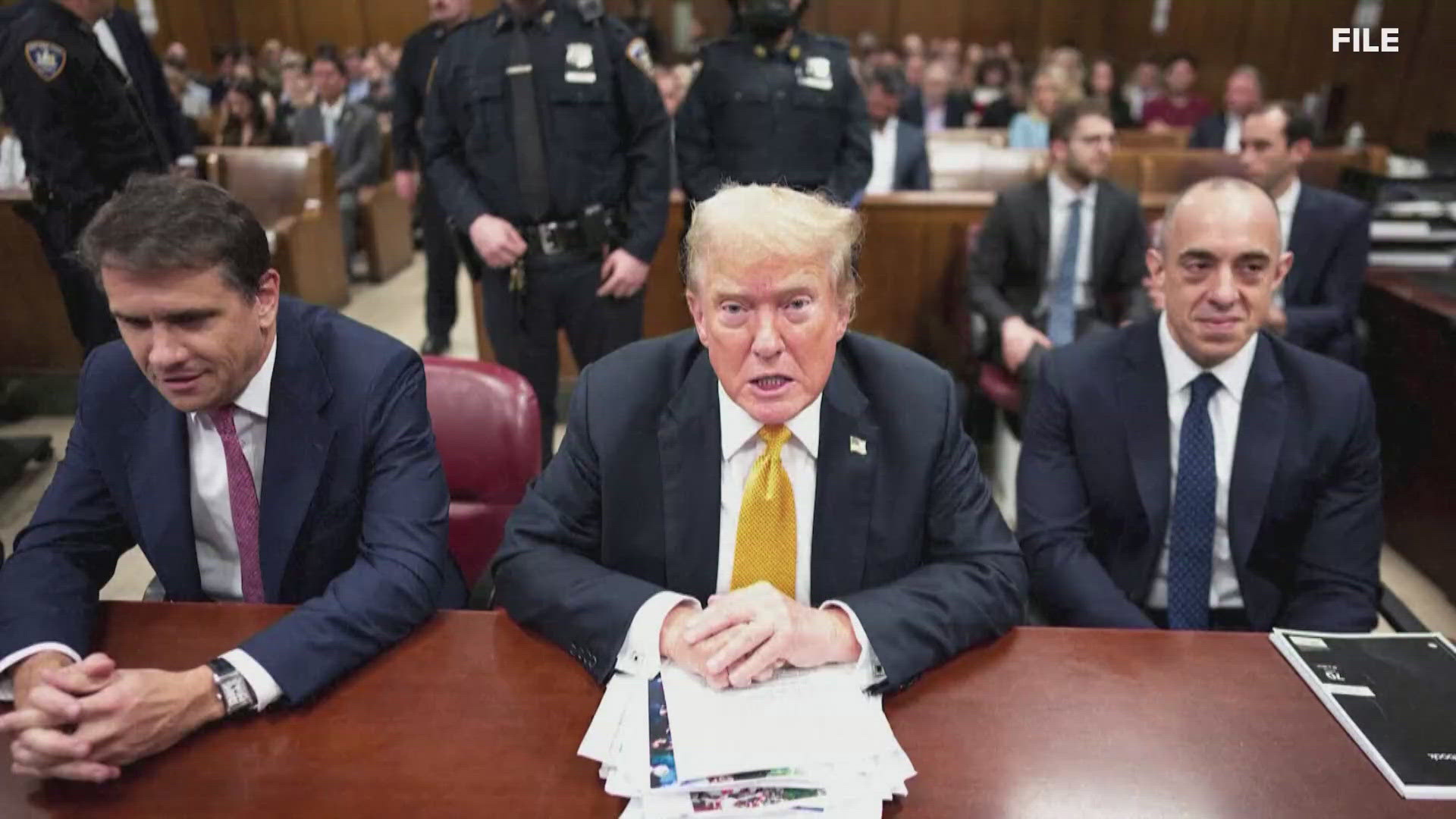MISSOURI, USA — The Missouri Veterans Commission will likely receive about $19 million from marijuana sales revenue before the current fiscal year is over on July 1, Amy Moore, director of the Division of Cannabis Regulation, told a House committee on this week.
Next year it will be $22 million, she said, if the governor’s budget recommendations are approved.
“The governor’s recommendation is quite a bit more than expected,” Moore told members of the House Veterans Committee, “and that is tied to the unexpectedly robust sales, mostly on the adult-use side.”
Since Missouri’s marijuana sales began in 2019, the state has collected more than $150 million in revenue from taxes and program fees, according to a presentation Moore shared with the committee.
Etched in the state’s constitution is a road map for where the revenue can go.
The first stop is operational costs. By law, any expense it takes to run both medical and recreational marijuana programs — like salaries or professional services — all must be paid for through marijuana revenues.
The division has received nearly $50 million to cover its operating expenses, the presentation shows.
After expenses, the constitutional amendment that legalized medical marijuana in 2018 mandated that revenues from medical sales go towards the Missouri Veterans Commission. To date, nearly $40 million in medical marijuana sales revenue has gone to the commission — including $13 million this year.
The revenue road map is a bit different for the adult-use marijuana program, and it’s defined in Amendment 3 that was approved by voters in November 2022.
After paying operational costs, the next draw on the fund is expenses incurred by the court system for expunging certain marijuana offenses from people’s criminal records.
After that, revenues are split in three ways: supporting veterans, funding drug addiction treatment programs and adding to the Missouri Public Defenders System’s budget.
So far, each of these funds has received $1.3 million, Moore said, but the governor is proposing an additional $5 million to each in his supplemental budget recommendation for this year.
All together that would be $19.3 million going to support veterans this year: $13 million from medical marijuana sales and $6.3 million from adult-use.
Moore said the governor’s budget recommendations for next fiscal year includes an additional $7.8 million — putting the total at $22 million.
State Rep. Dave Griffith, a Republican from Jefferson City and the veterans committee chairman, said the numbers are encouraging.
“The amount of sales that they’ve had with commercial marijuana has been just record-breaking and exceeded all expectations and projections,” he said. “Because of that, there’s going to be even more money into that pool than what they projected right after [Amendment 3] passed.”
The Missouri Veterans Commission has three core responsibilities, Griffith said: maintaining the state’s veterans homes and cemeteries and providing service officers to assist veterans with their benefits.
Griffith said his goal is to get the commission’s annual allocation up to $50 million that wouldn’t be reliant on marijuana revenue.
Before Moore’s presentation, the committee was discussing challenges that some veterans face obtaining their benefits. The state needs more service officers to assist them, he said, and that’s why the funding is so important.
“Many of them, they’re so overburdened with their caseloads that it’s hard to get in with them,” Griffith said. “If we can increase the number we have, we can start trying to cut down on that wait time many veterans have.”
This story from the Missouri Independent is published on KSDK.com under the Creative Commons license. The Missouri Independent is a nonpartisan, nonprofit news organization covering state government, politics and policy.



